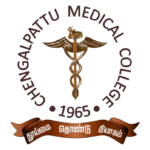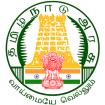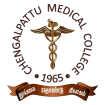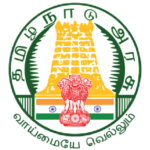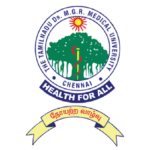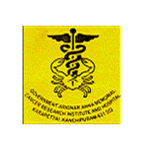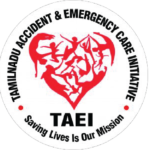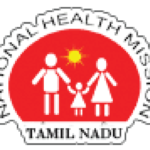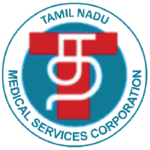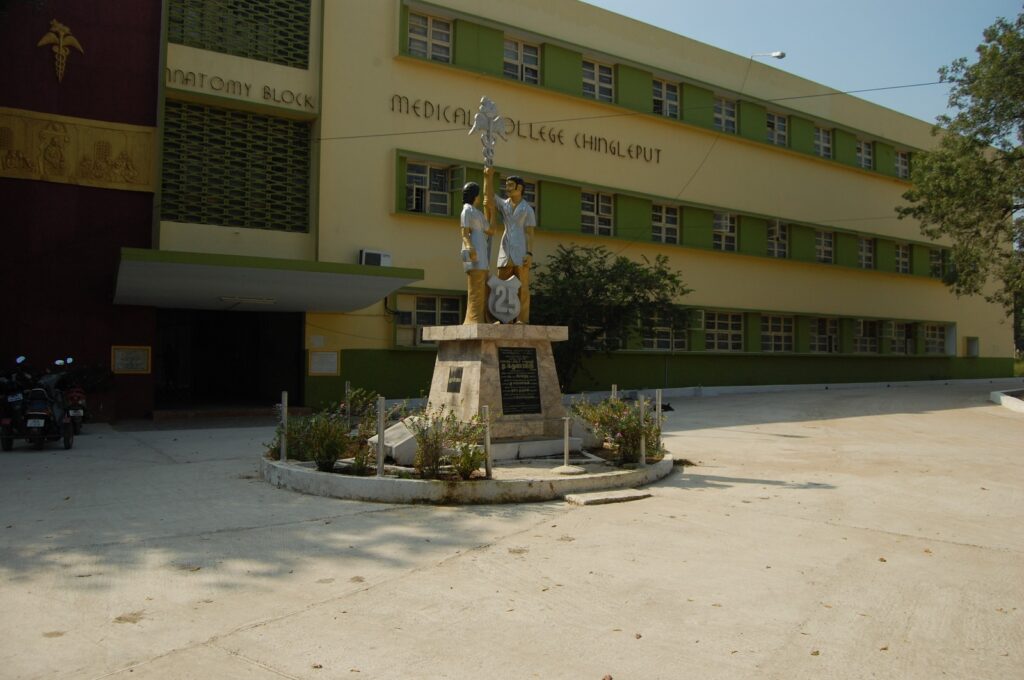
The history of Chengalpattu Medical College traces its origins to a time preceding 1965 when it served as a District Headquarters hospital situated within the town. In 1965, the Government of Tamil Nadu elevated this hospital to a teaching institution with 250 beds dedicated to clinical training. Vedachalam Mudaliar, the former Chairman of Chengalpattu Municipality, generously donated a substantial parcel of land that remains under the institution’s ownership. Presently, the college operates under the auspices of The TN Dr. MGR Medical University in Chennai, Tamil Nadu, India, under the exclusive administration of the State Government. Recognized as a Medical Teaching Institute by the Medical Council of India in New Delhi, the college upholds the motto of “Discipline, Service, and Sacrifice.” It educates approximately 500 undergraduate and 100 postgraduate students from various regions across the country in diverse medical disciplines.
Nestled on a sprawling 240-acre campus at Highgrounds in Chengalpattu, Kancheepuram District, Tamil Nadu, the college’s infrastructure, hospital buildings, and hostels are strategically located within a two-kilometer radius of Chengalpattu Railway Station junction and the Intercity Bus Station, as well as 30 kilometers from the International Airport.
Initially admitting 50 students annually, this institution maintained this intake until 2012, after which it increased its admissions to 100 students per academic year. Established over five decades ago, this institution was the sixth of its kind to be established in Tamil Nadu. The admission of female students commenced in 1970, with the first batch of M.B.B.S. graduates emerging from the college in 1972.
The hospital’s early years were characterized by fundamental departments encompassing medicine, surgery, obstetrics and gynecology, pediatrics, orthopedics, ophthalmology, otolaryngology, psychiatry, and chest clinic. Over time, additional departments were established, transforming the hospital into a tertiary care center. The College and Hospital maintain well-attended Outpatient Departments and Inpatient Services, with an average of approximately 3,000 to 3,500 daily outpatient visits. The average bed strength and occupancy rate range from 600 to 700 per month and 90-110% per month, respectively.
The institution boasts super-specialty departments such as neurology, cardiology, nephrology, pediatric surgery, plastic surgery, urology, and neurosurgery, catering to the specialized needs of patients. With fully functional facilities for hemodialysis, automatic analyzers, a Radiology Department, and super-specialty departments, the institution offers a comprehensive healthcare service. Training 29 postgraduates annually through All India and State Quotas in 12 broad specialty and super-specialty departments, including General Medicine, General Surgery, O&G, Pediatrics, Anesthesia, DVL, Pathology, Physiology, Pharmacology, Microbiology, and Psychiatry, reinforces the institution’s commitment to medical education.
Moreover, the College provides Para Medical Courses such as BSc Nursing, Diploma Nursing, BSc Radiology, DMLT, Certificate Courses, Nursing Assistant programs, and various technical courses. Its fully operational multidisciplinary research unit facilitates numerous research projects undertaken by faculty, students, as well as collaborative initiatives with organizations like ICMR and WHO. The Central Library is equipped with an extensive collection of books and journals, supplemented by E-Journal access with individual user IDs and passwords.
Chengalpattu Medical College features a 750-seater auditorium, a modernized examination hall equipped with a surveillance system, and state-of-the-art lecture halls. Recognizing the growing demand for medical professionals in the region, the institution aims to introduce new courses in various higher and broad specialty fields to address the escalating healthcare needs of the populace. This strategic initiative aligns with a comprehensive plan focusing on advancing medical education to enhance:
- Improved and expanded healthcare services in rural regions of the district
- Enhanced employment opportunities for trained medical personnel across Chengalpattu and surrounding districts of Kancheepuram to elevate emergency and critical patient care
- Augmented medical workforce to facilitate equitable access to medical services and healthcare
- Strengthened health management strategies to effectively manage challenges arising from natural and man-made disasters
The imperative to cultivate a larger pool of well-trained medical professionals remains paramount to meet societal demands and uphold the standards of healthcare delivery.

